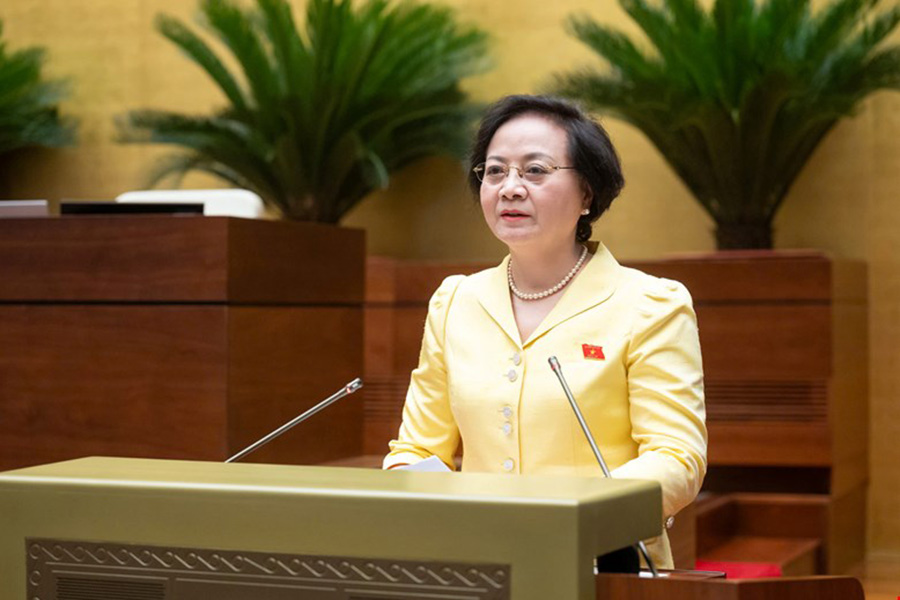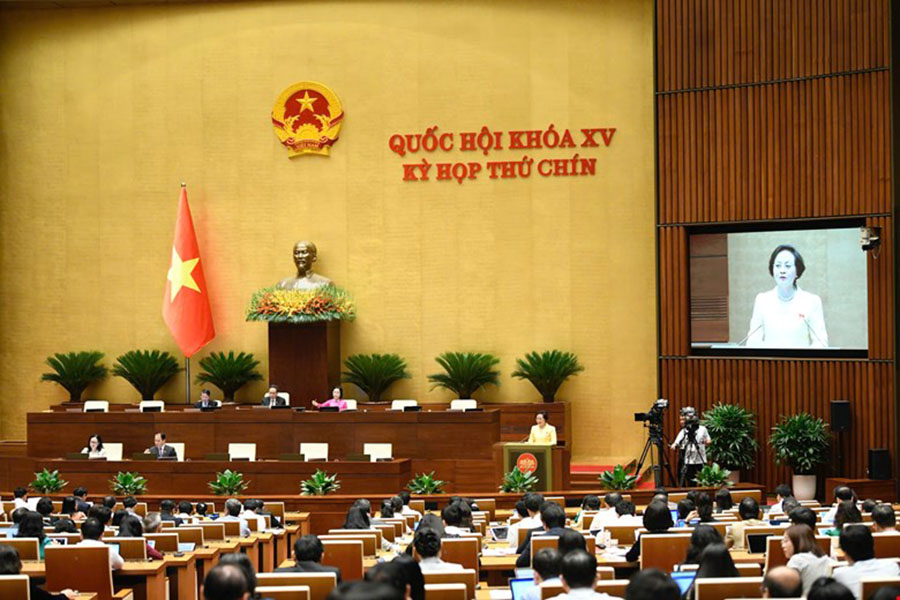Continuing the 9th Session, on the morning of May 7, the National Assembly listened to the report on the Draft Law on Cadres and Civil Servants; reviewed the Draft Law on Cadres and Civil Servants.
Presentation of the Law Project, the Minister of Home Affairs Pham Thi Thanh Tra evaluated that the amendment of the current Law on cadres and civil servants in order to implement the Party's policy on the organization of a two -level local government model, associated with the requirements of streamlining payroll, restructuring and improving the quality of cadres and civil servants.
At the same time, it contributes to building a professional administration, innovating national governance in a modern, efficient, effective, and efficient direction, focusing on development management to bring the country into a new era.
The basic content of the draft Law focuses on issues such as regulations on cadre connectivity; regulations on the mechanism for managing and using cadres and civil servants in a transparent and effective manner...
Innovation in civil servant recruitment
According to the Minister of Home Affairs, the draft Law has supplemented and perfected regulations to implement the policy of building a unified, interconnected, and synchronous civil service from the Central to the commune level.
At the same time, there is a transitional regulation for commune-level cadres and civil servants to be elected or recruited before the effective date of this Law. If they meet all standards and conditions, they will be converted to cadres and civil servants under the administrative payroll of the locality where the cadres and civil servants work to arrange and assign to job positions at the new commune level.

The draft Law also amends and supplements contents related to civil servant recruitment.
Accordingly, recruitment work is being innovated in the direction that the selected person must immediately meet the requirements of the job position, after being recruited, be appointed, and have salary classified at the civil servant rank corresponding to the recruited job position and do not have to undergo probationary regime.
In addition to traditional recruitment exams and selections, civil servant recruitment also includes a form of acceptance for talented and experienced people from the non-public sector, public service units, state-owned enterprises, etc., or the signing of fixed-term contracts for experts, scientists, and those who meet the standards and conditions to perform some tasks of professional and technical civil servant positions.
At the same time, the draft Law also removes regulations on inspection of the quality of civil servant input at the national level to implement the policy of promoting decentralization and delegation of authority in civil servant management, strengthening the post-inspection, inspection and examination mechanism, ensuring decentralization goes hand in hand with effective power control.
Improving the effectiveness of evaluating, using and screening cadres and civil servants
The draft Law on Cadres and Civil Servants is amended and supplemented in the direction of converting the method of managing cadres and civil servants according to job positions.
Accordingly, the draft Law clearly stipulates that the assessment, arrangement and use of cadres and civil servants must be based on the requirements of the job position and the capacity, results and effectiveness of the performance of the tasks of cadres and civil servants.
Remove the regulation on promotion exams, instead, the mechanism for arranging to any job position is classified as a corresponding civil servant rank, associated with capacity and performance results of tasks, thereby minimizing administrative procedures, creating real motivation for cadres and civil servants to strive.
Regarding the work of evaluating cadres and civil servants based on the draft Law, this work must be based on the results of performing specific tasks and work products according to the requirements of the job position, instead of based on general criteria, forms or emotions.

"The draft Law adds a mechanism to eliminate the thinking of "reational institutions for life" and improve discipline and administrative discipline. At the same time, clearly define the responsibilities of leaders in managing, evaluating and using civil servants with the right capacity and job position", Minister of Home Affairs Pham Thi Thanh Tra presented the Proposal.
According to the drafting agency, the above amendments and supplements create a synchronous legal corridor, modernizing civil servant management in a dynamic, transparent and effective manner.
Ensuring the principle of using the right people and right people, maximizing the capacity of cadres and civil servants, and at the same time screening cases that fail to meet the task requirements, contributing to building a contingent of professional and responsible cadres and civil servants, good ethics, good service for socio -economic development and needs of people and businesses.










